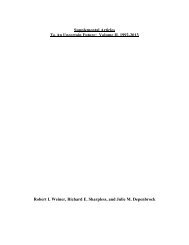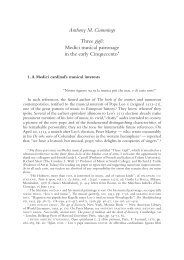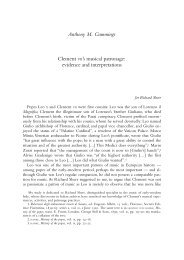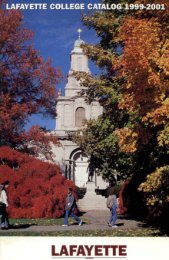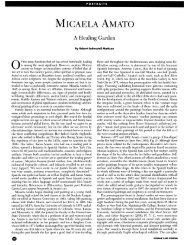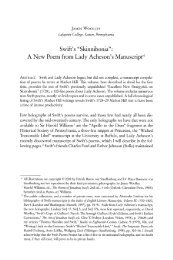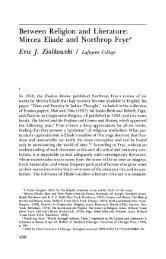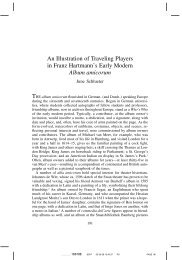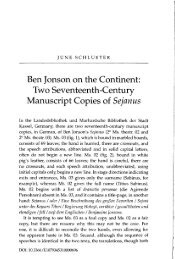Ziolkowski-Dost ... ianTradition-2001-p156.pdf
Ziolkowski-Dost ... ianTradition-2001-p156.pdf
Ziolkowski-Dost ... ianTradition-2001-p156.pdf
Create successful ePaper yourself
Turn your PDF publications into a flip-book with our unique Google optimized e-Paper software.
160<br />
ERIC ZIOLKOWSKI<br />
towards books and reading did not soon dissipate. Fedotov amply<br />
documents the veneration o f books that found expression in the<br />
anonymous fourteenth-century ‘collection’ (izbornik) o f devotional<br />
readings, Izmaragd (‘Em erald’), which would remain the favourite<br />
compilation o f its kind among the Russian laity for the next four<br />
centuries. M aking no attempt to distinguish the divine revelation o f<br />
the Bible from the theological writings o f the Church fathers,<br />
Russians regarded all religious literature as ‘sacred’ and ‘divine’.<br />
The Izmaragd, like most other izborniki, opens with a set o f writings<br />
on ‘books’ and ‘book reading’, expounding that books are creations<br />
o f the H oly Spirit; that God, in exhorting human beings to study His<br />
law, was referring to the study o f books; that the person who holds<br />
books in hand will be unable to forget those ‘terrible books’ of<br />
Judgment which will be opened in the age to come; and that the<br />
person who blasphemes or fails to heed sacred books shall be judged<br />
and punished.15 Books and reading are thus endowed with eschato-<br />
logical significance.<br />
<strong>Dost</strong>oevsky’s inheritance o f such venerational attitudes towards<br />
books and reading is documented in his Diary o f a Writer. If, for<br />
example, a Christian text o f medieval K iev can eulogise ‘book<br />
learning’ by praising books as ‘the fountainhead o f wisdom’, ‘the<br />
bridle o f temperance’, and by quoting from the Wisdom of<br />
Solomon to legitimate the authority o f the wisdom books,16 this<br />
eulogy anticipates a remark made by <strong>Dost</strong>oevsky in an entry of<br />
1876. After expressing doubt that many Russians know about the<br />
saint Tikhon o f Zadonsk, he asks: ‘W hy should one be so blankly<br />
ignorant; why should one promise oneself not to read? Is it for lack o f<br />
time? Believe me, . . . you would be learning beautiful things.,17 And if<br />
early Russian Christians deemed books to be eschatologically<br />
pertinent, this judgm ent renders all the more comprehensible <strong>Dost</strong>oevsky’s<br />
rumination that if human beings were to be asked at the<br />
end o f time whether they understood their life on earth, and what<br />
they concluded from it, their most adequate response could already<br />
be found in a book - not just any book, but a work o f fiction that is<br />
widely regarded as the first modern novel: ‘M an could silently hand<br />
over Don Quixote: “ Such is my inference from life. - C an you<br />
condemn me for it?” ’ 18<br />
This apocalyptic valuation o f Cervantes’s classic, a valuation<br />
reiterated elsewhere in Diary o f a Writer,19 accords with <strong>Dost</strong>oevsky’s<br />
pre-eminently Romantic view o f the novel’s hero.20 In an oft-quoted



